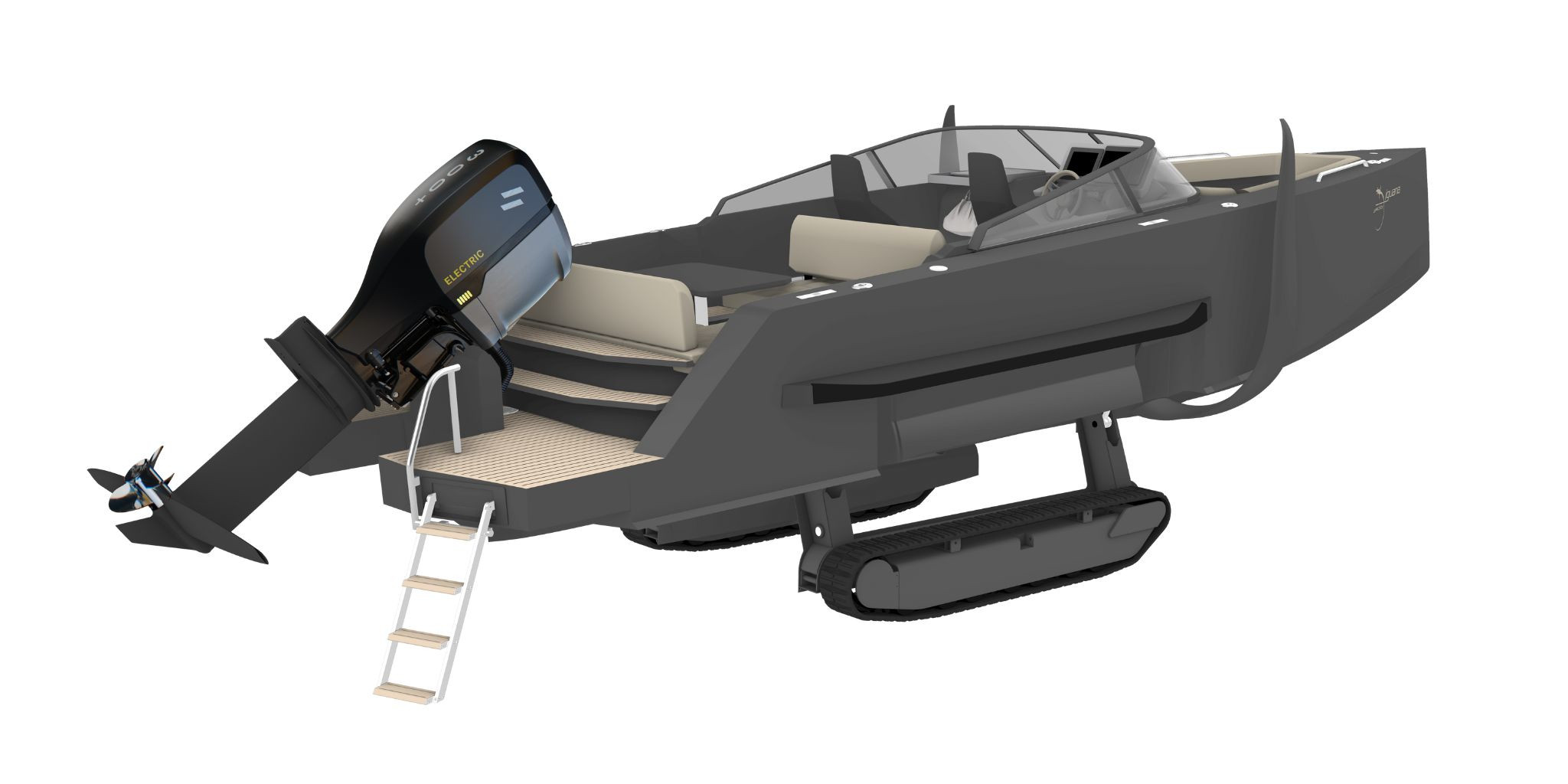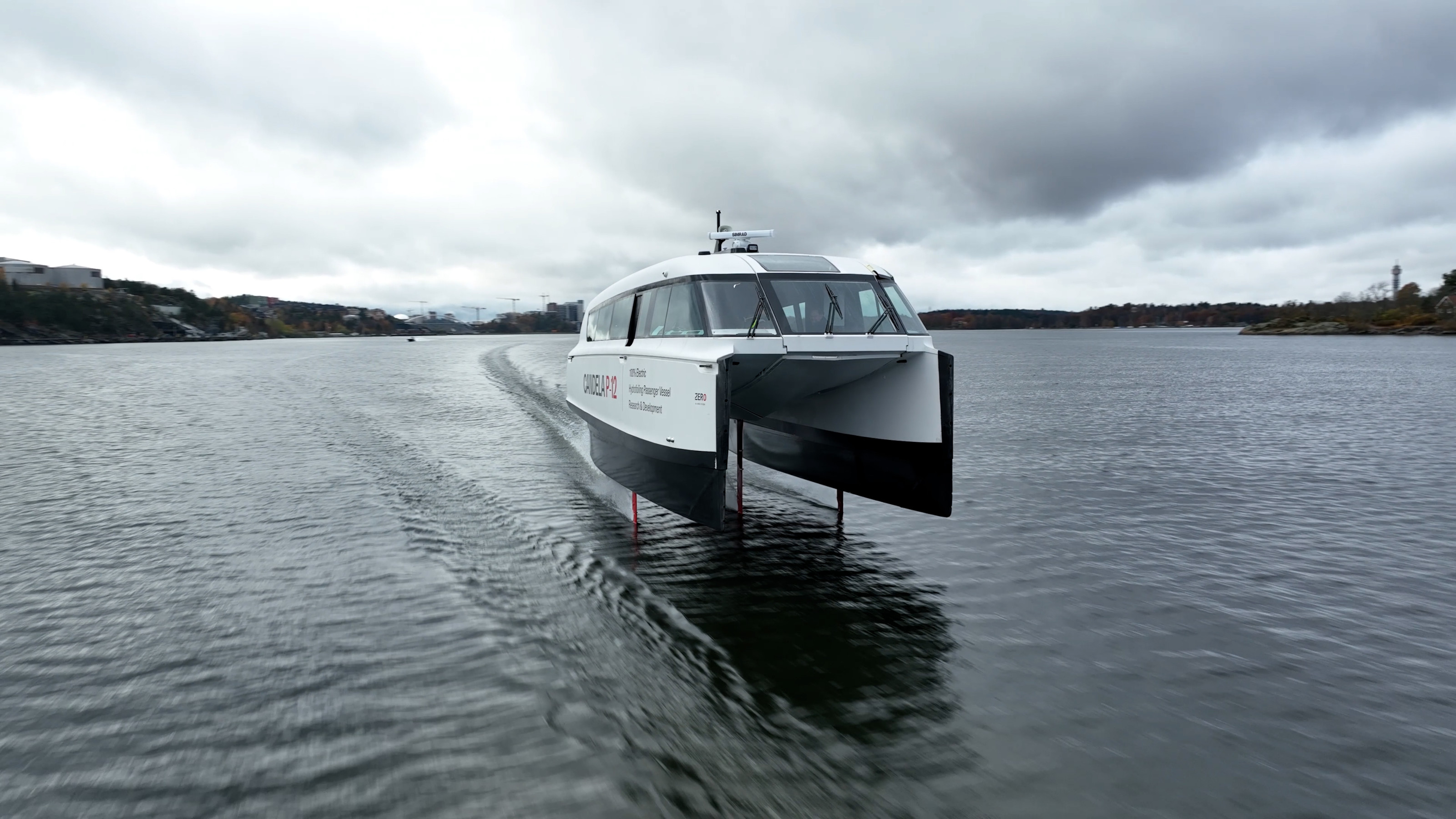
2025 looks set to be the year of the electric boat. There’s now a small fleet of innovative new watercraft available, from speedboats to ferries and electric hydrofoils, scaled up in size and intent thanks to leaps and bounds in new battery technology and the growth in quayside charge infrastructure around the world. We’ve rounded up 11 of the latest offerings.
New electric boats – go make some waves
Navier N30
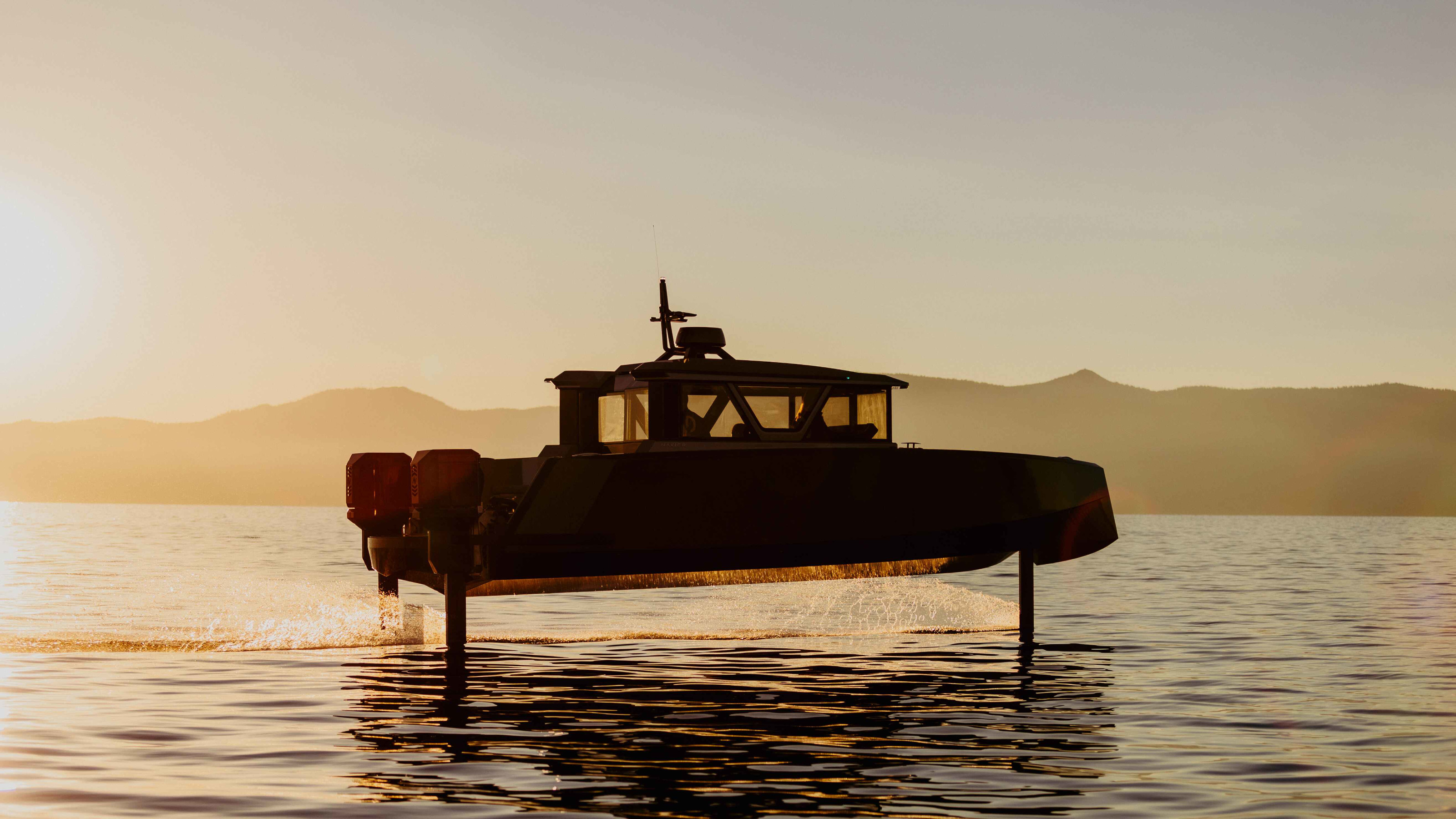
Described by its manufacturer, Bay Area startup Navier, as the ‘world's longest range electric boat’, the Navier N30 is a 30ft ‘flying hydrofoil’, following the established principle of raising itself out of the water on slender foils at speeds above 16 knots in order to minimise drag – and thus increase range. As a result, the company promises a range of over 75 nautical miles at speeds of 20 knots.

Foilone Pegasus
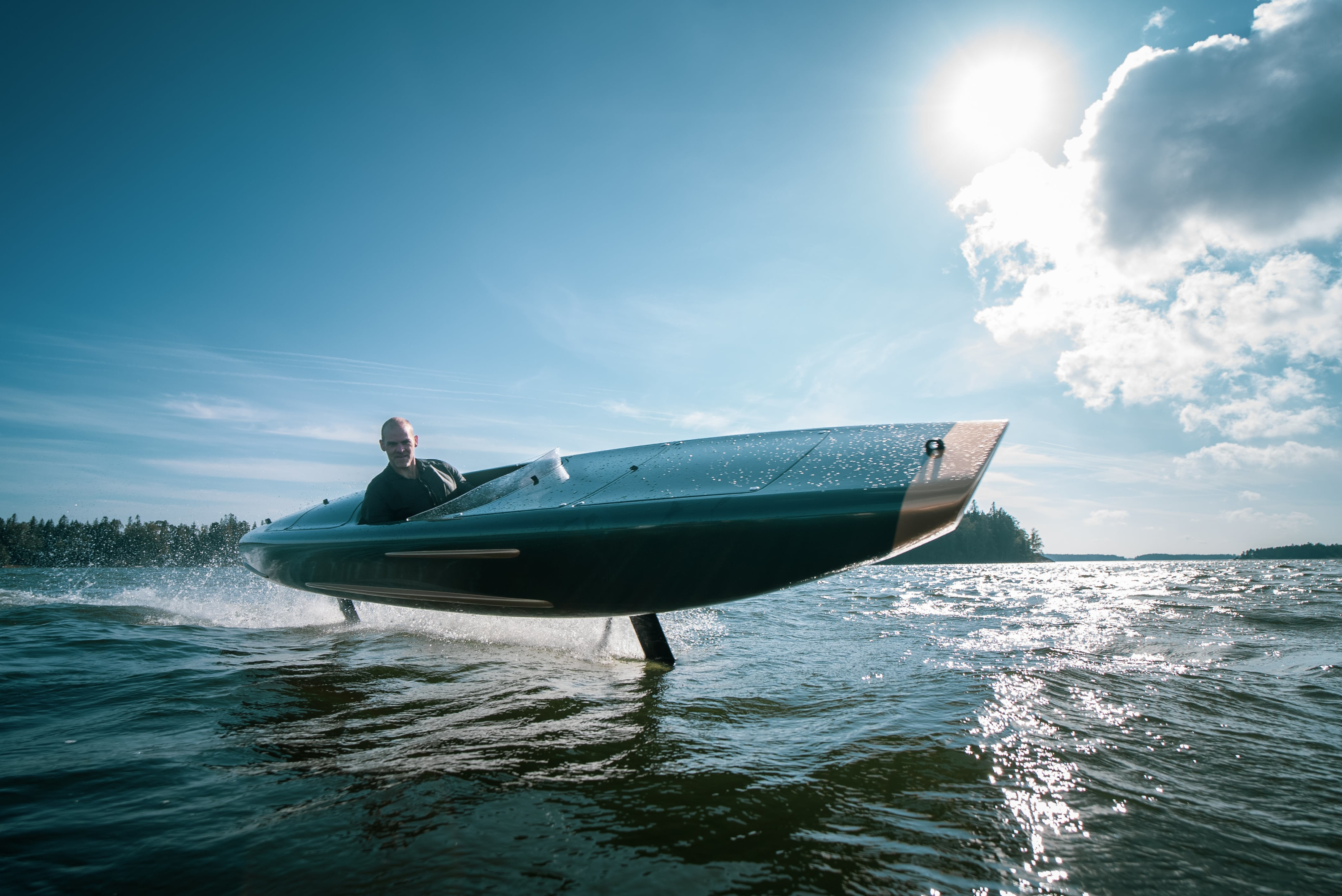
The Pegasus is an electric hydrofoil with a more sporting slant. Manufactured by Finnish company Foilone Boats, the Pegasus is sporting in image and intent.
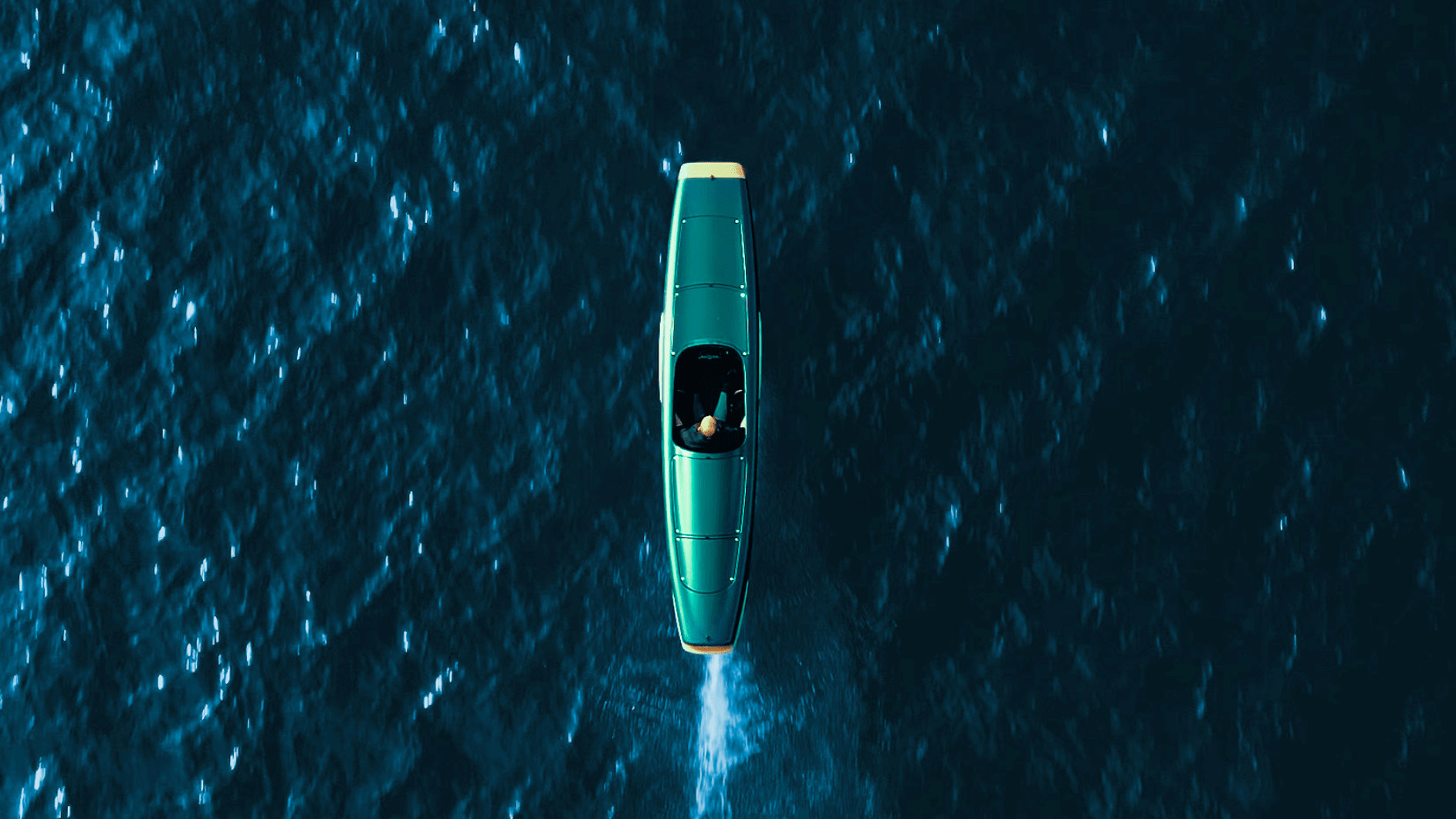
With a long slender fuselage made from carbon fibre and inspired by fighter planes and old Formula 1 cars, the 4.88m-long single-seater is less than a metre wide and weighs 200kg, including the battery pack. Top speed is an impressive 30 knots and the boat should cruise at 20 knots with a two-hour running time.
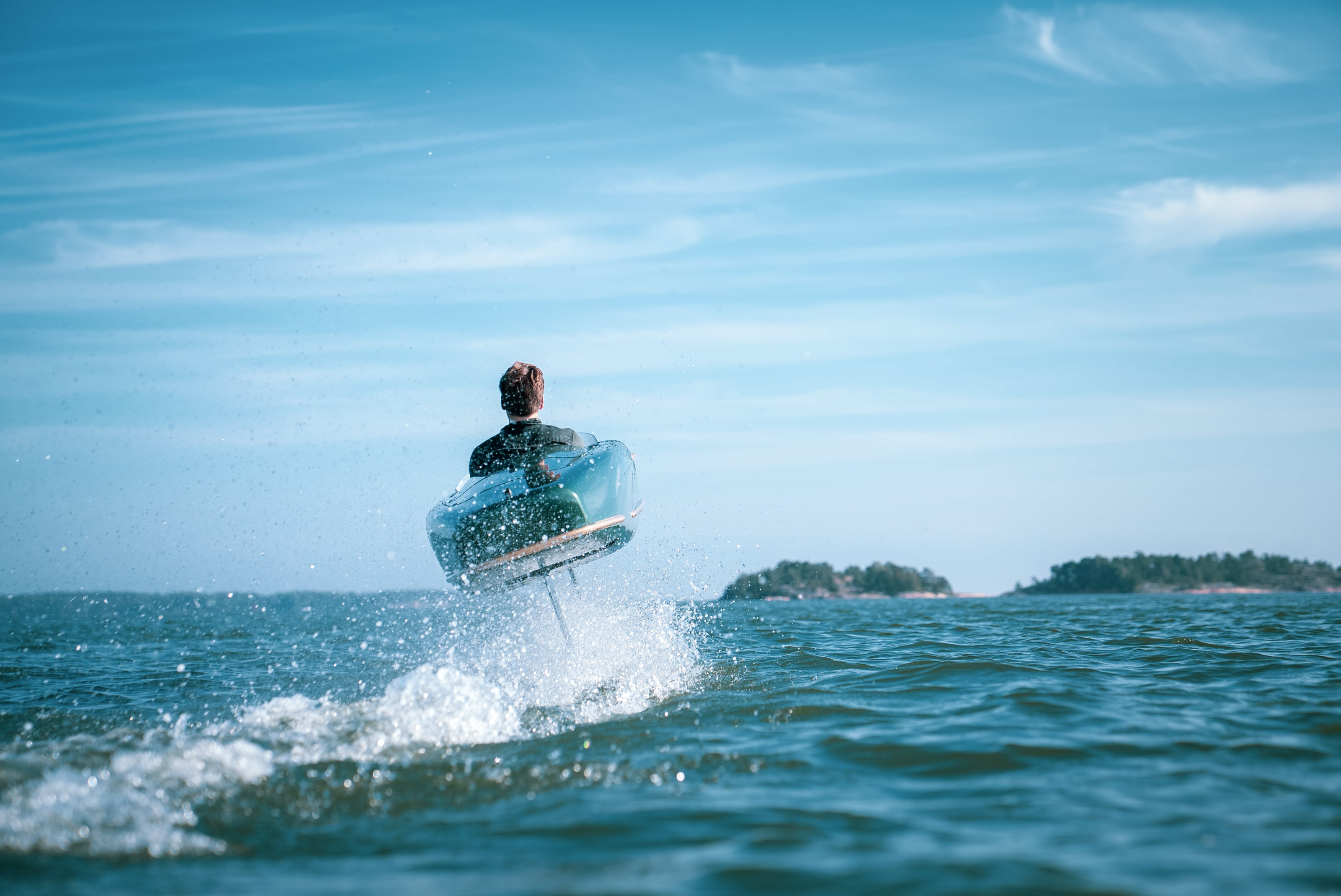
Foilone Pegasus, from €139,900, Foil.One, @Foilone
ENVGO NV1
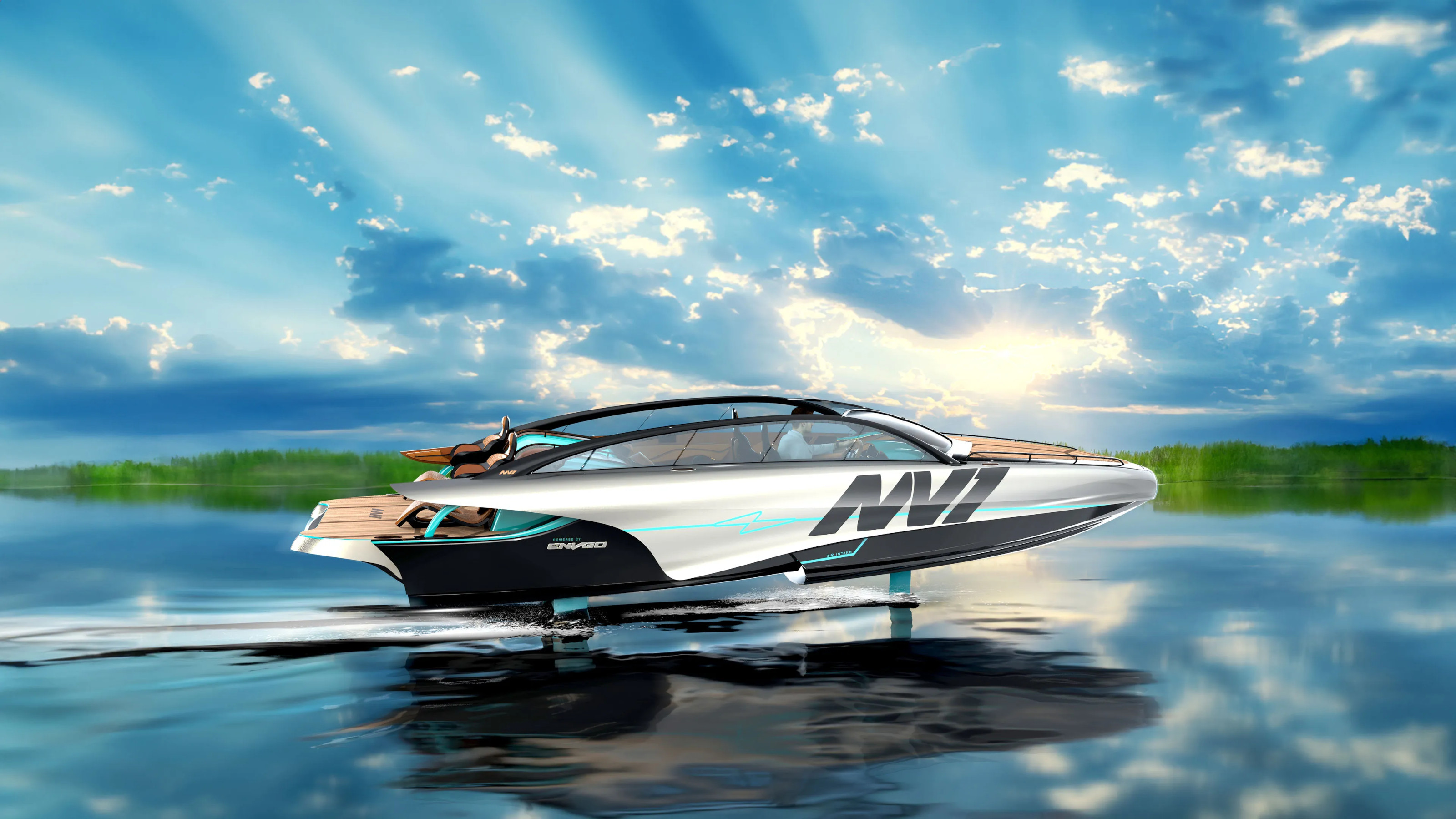
Due to launch in 2025, the NV1 is the first product from ENVGO, a new startup that has enlisted tech specialists and superyacht designers to create a hydrofoiling electric boat with a proposed top speed of 43 knots. At 8.3m long, the NV1 is a substantial craft, with 80 kWh of batteries giving a range of up to 80 miles. The company is taking expressions of interest for the first-run Founders Edition model.
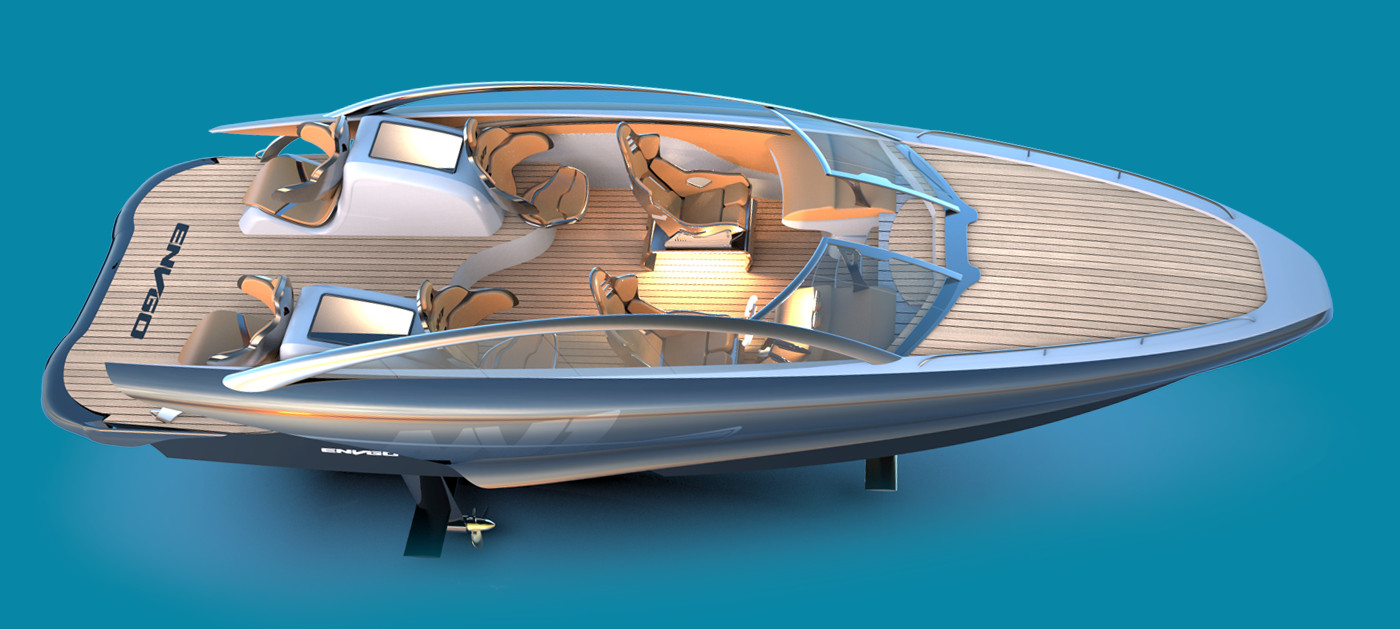
SeaBubbles Smart Bubble
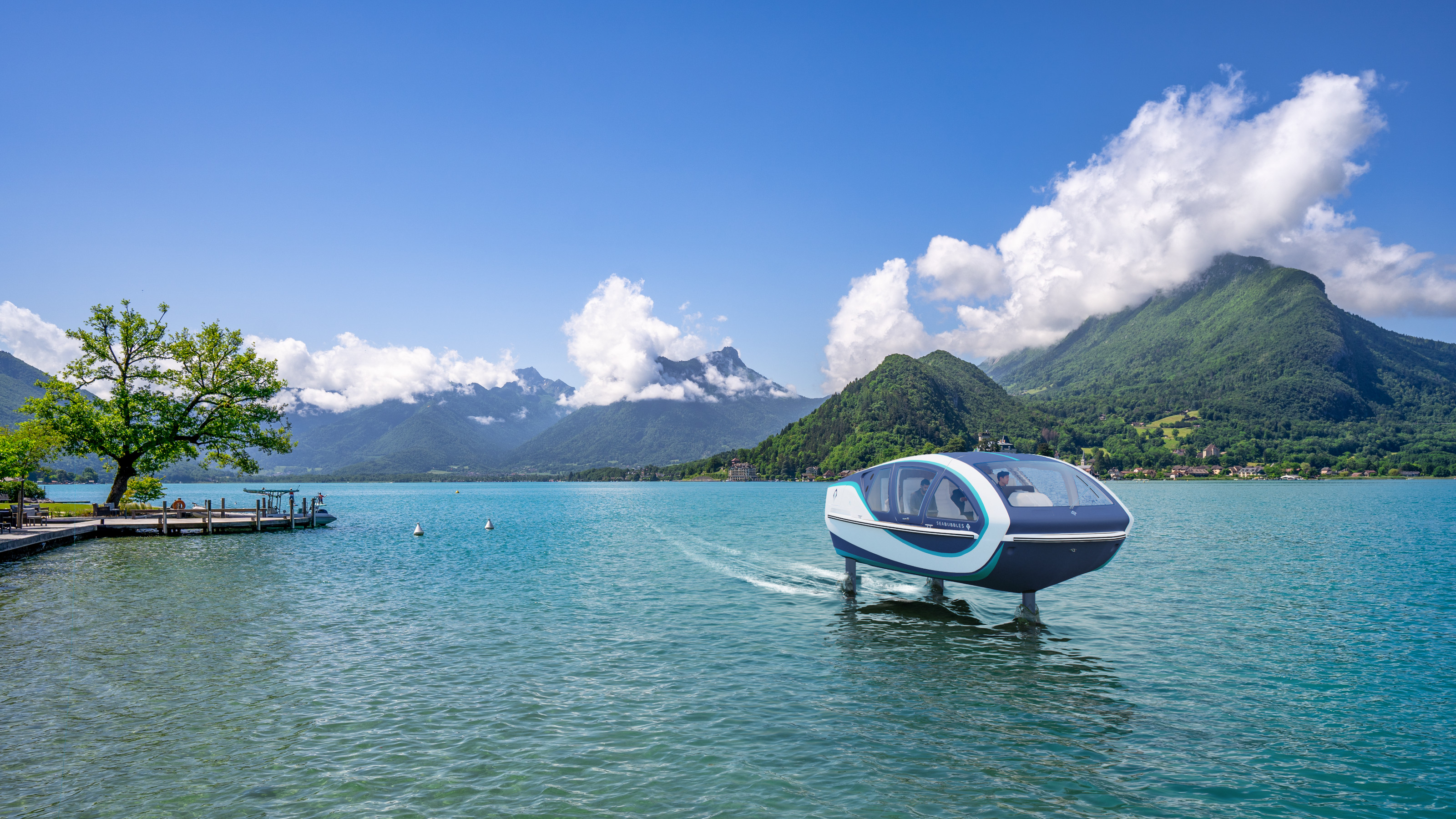
SeaBubbles is a French company looking to get into the burgeoning electric water taxi industry. The company’s two craft, the Bubble and the Smart Bubble, are fully enclosed vessels using a hydrofoil system. The original Bubble was first shown in 2021 and has now been joined by the six- to ten-passenger Smart Bubble. Intended primarily as a water taxi, the company will also supply a Smart Bubble configured for private use.
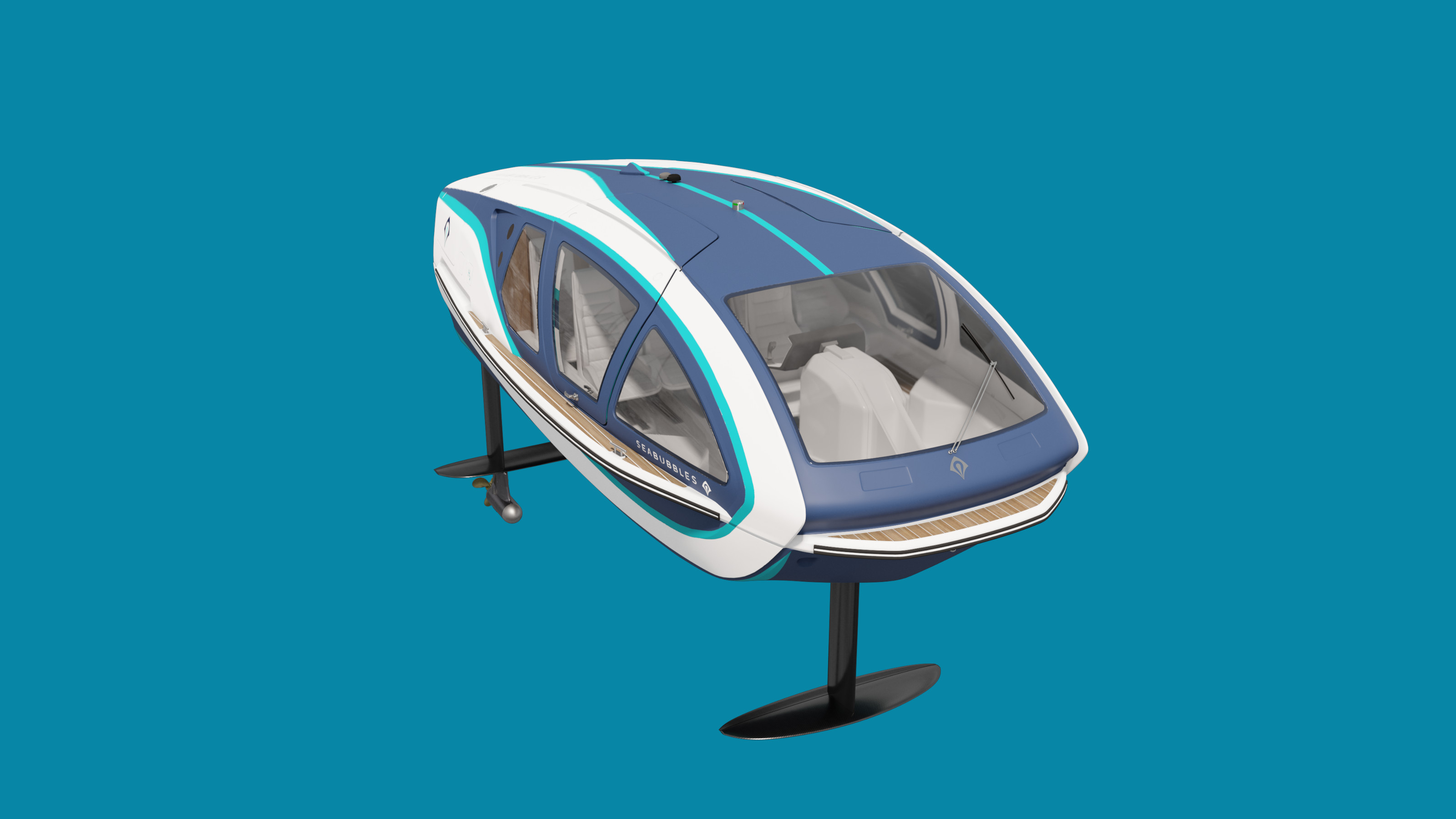
SeaBubbles.com, @SeaBubbles_Official
Candela P-12
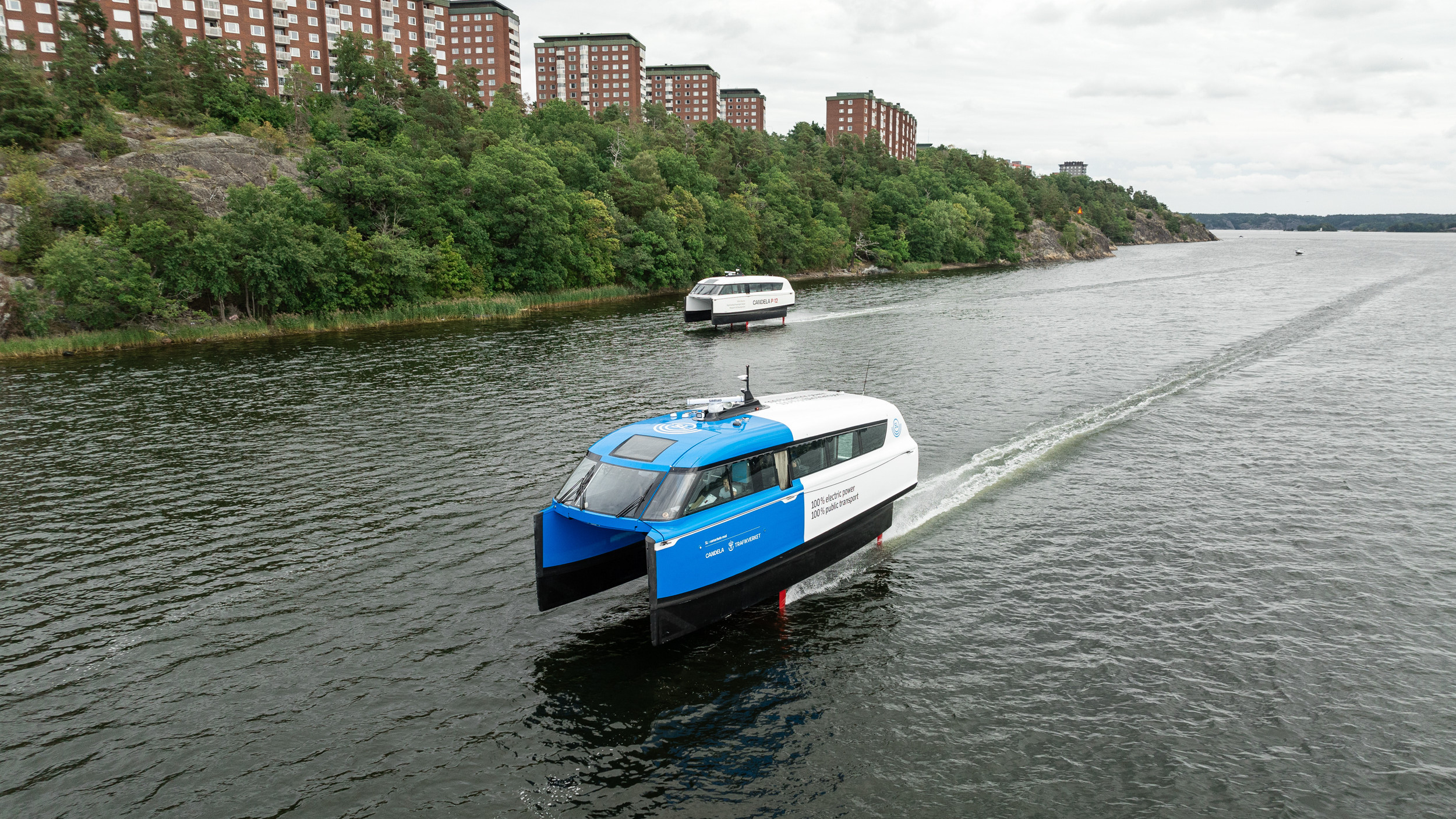
Already known for the Polestar edition of the Candela C-8 – a model that recently completed the first ever electric-powered crossing of the Baltic Sea – Swedish manufacturer Candela is now delivering the first batch of the larger P-12 model, a hydrofoil ferry. Last autumn the 30-passenger P12 began operating Stockholm’s Ekerö-Stockholm City Hall route.
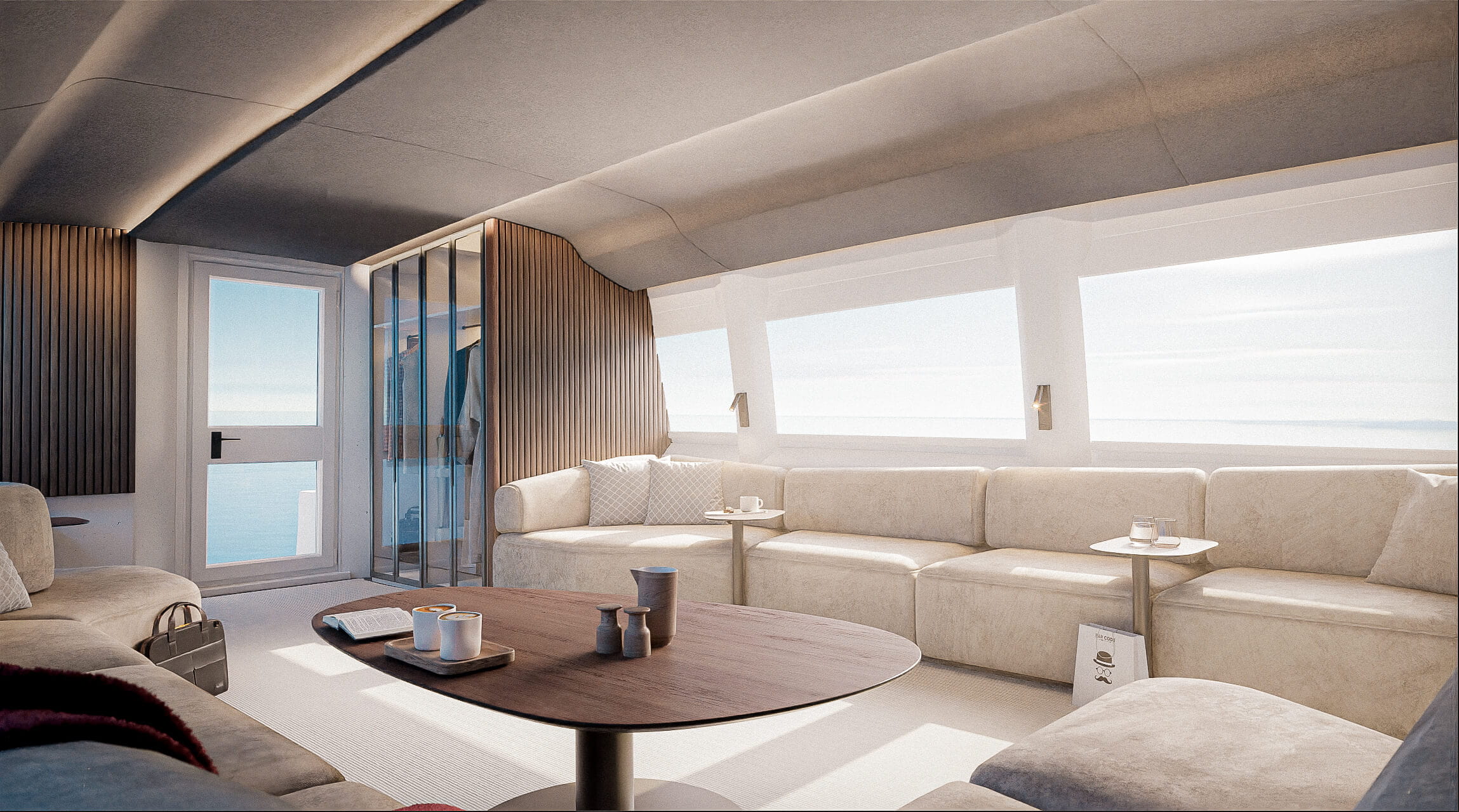
Thanks to the low wake generated by the foiling system, the boat received permission to travel much faster within the city than conventional craft. The 12m craft can travel 40 miles at its 25 knot service speed and is available as a hard-wearing Shuttle variant, a more upscale Business model or as the Voyager specification, which allows owners to customise the expansive cabin to their own requirements.
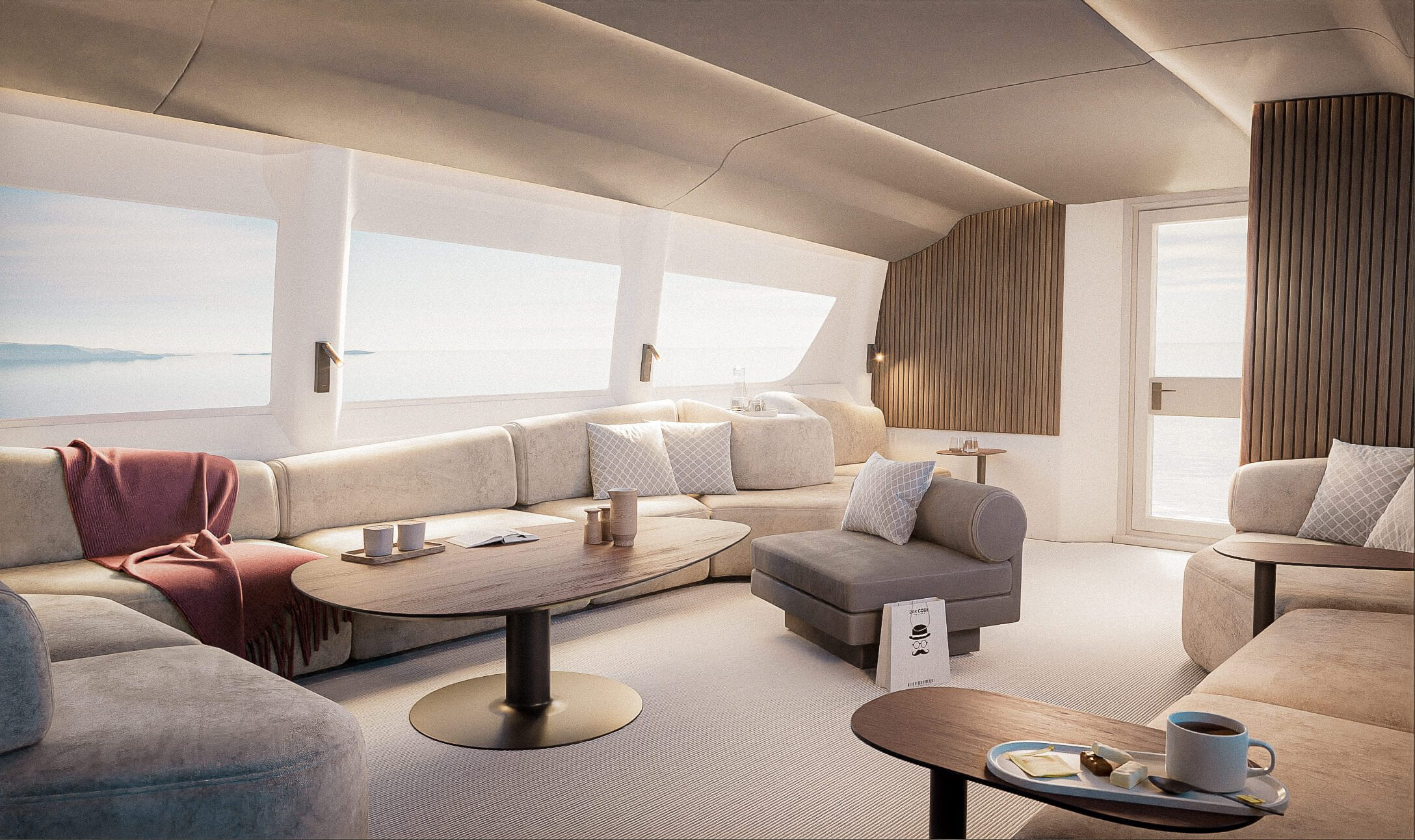
Artemis EF-12 Escape
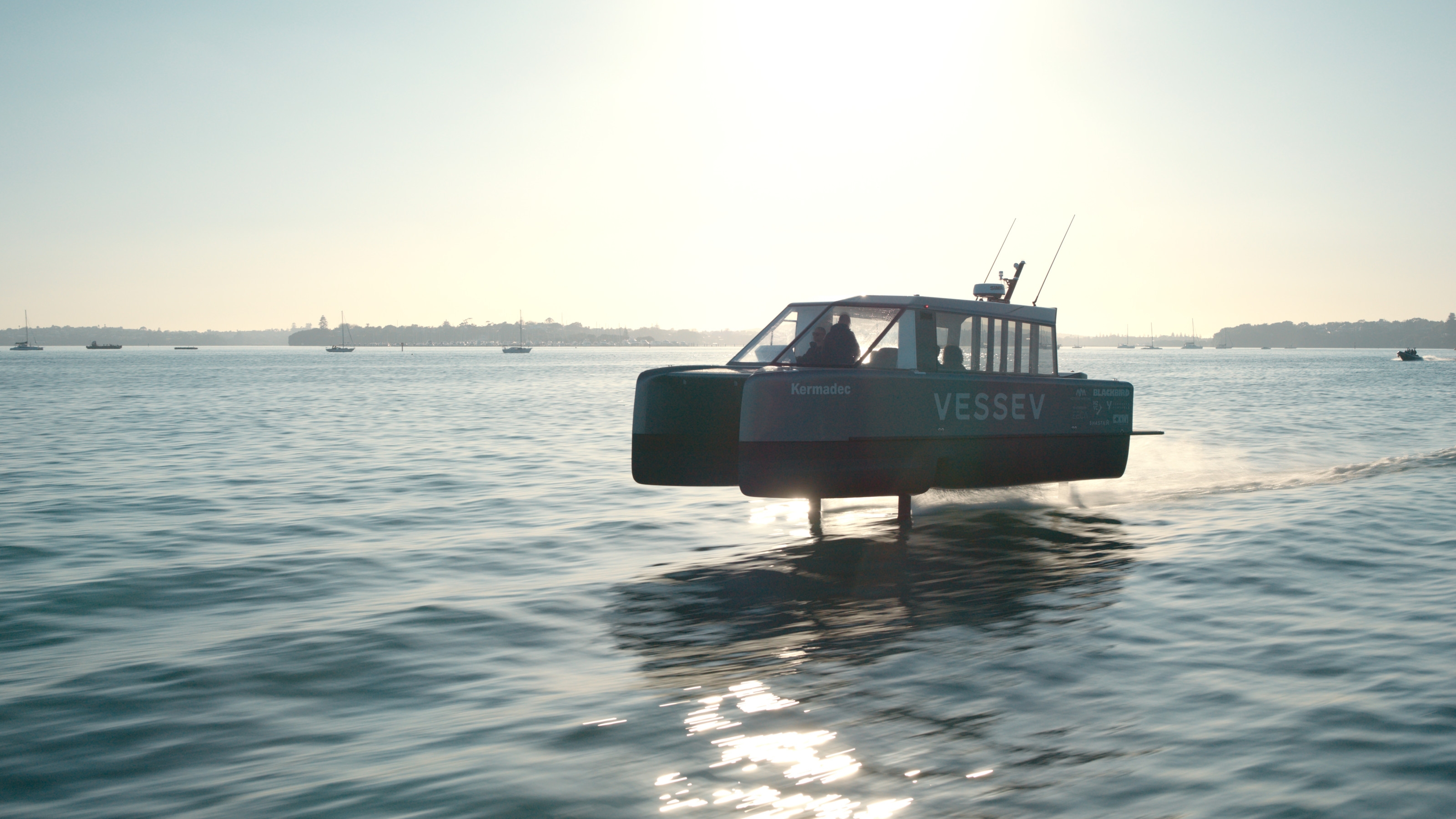
Another company looking to get into the water taxi market is Artemis. Based in Belfast and founded in 2017, Artemis recently launched the EF-12 Escape, using their proprietary Artemis eFoiler system for a smooth, quiet and efficient ride. The vessel has a top speed of 30 knots and a foiling range of 52 nautical miles, with space for 12 passengers. Fast charging comes as standard.
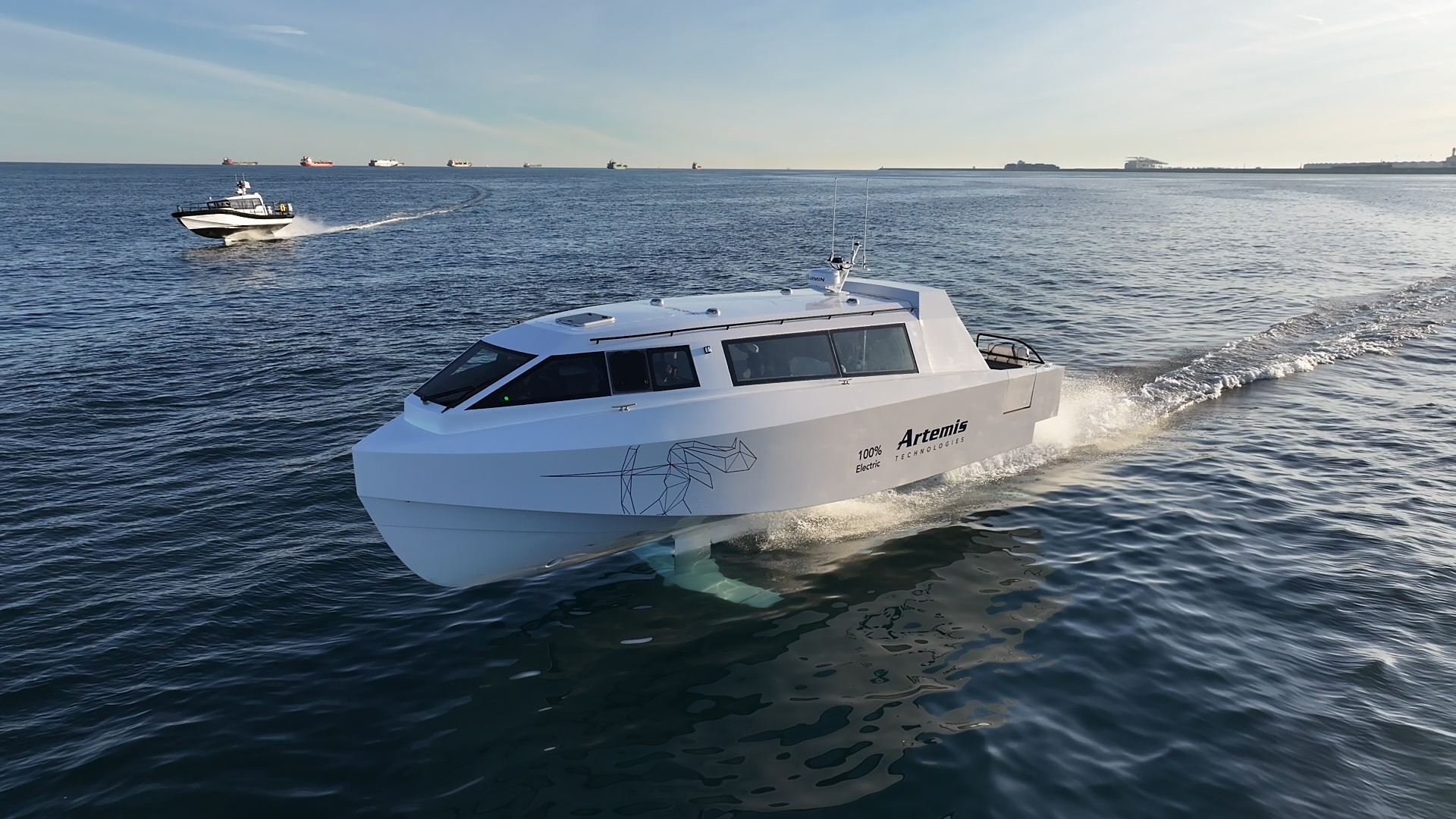
ArtemisTechnologies.co.uk, @ArtemisTechnologies
Vessev VS-9

On the other side of the world, you’ll find Vessev, an Auckland-based shipyard that makes the VS-9, a 9m ’premium tourism electric hydrofoil’ designed to take ten passengers at speeds of around 25 knots. The boat is set to enter service with New Zealand ferry operator Fullers360, and the twin-hull, fully enclosed design has been configured to maximise comfort and views.
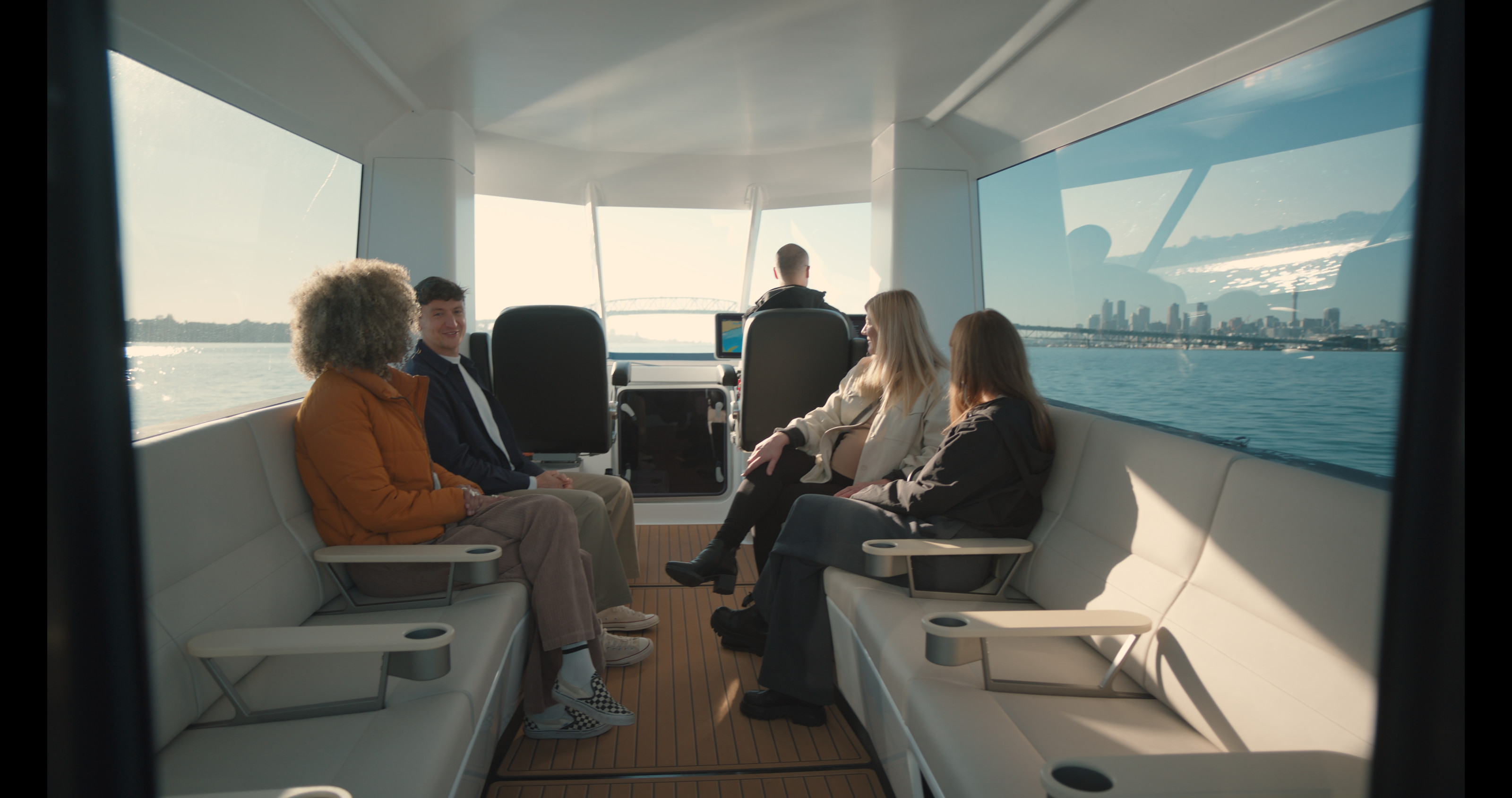
The company says it’s taken inspiration from the likes of private jet design and new era EV manufacturers like Rivian. According to the company’s CEO, Eric Laakmann, ‘our goal was to make sure the passengers of the VS-9 are connecting with only two things – those on the journey with them as well as their surroundings. We’ve accomplished exactly that.’
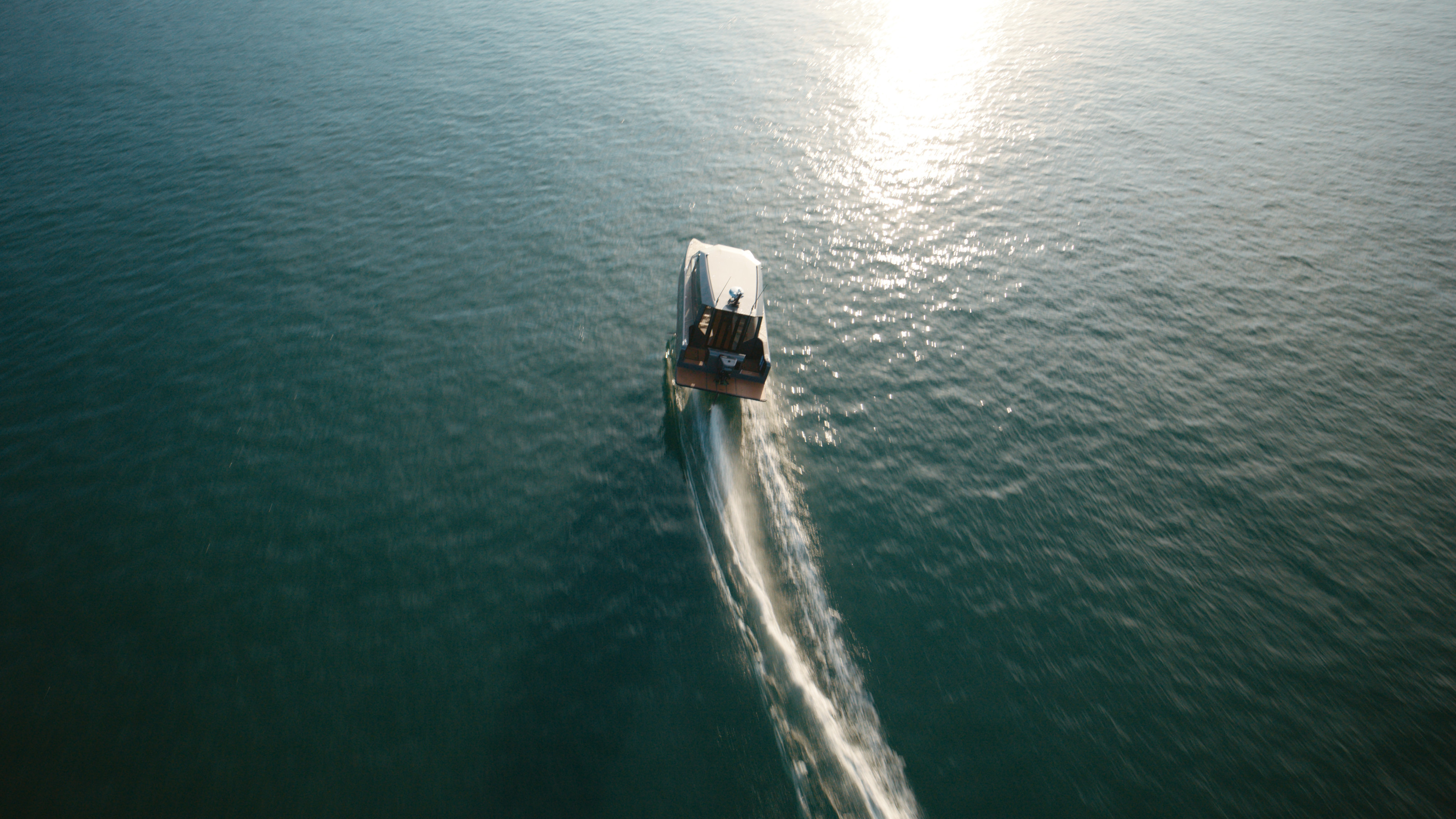
X Shore 1
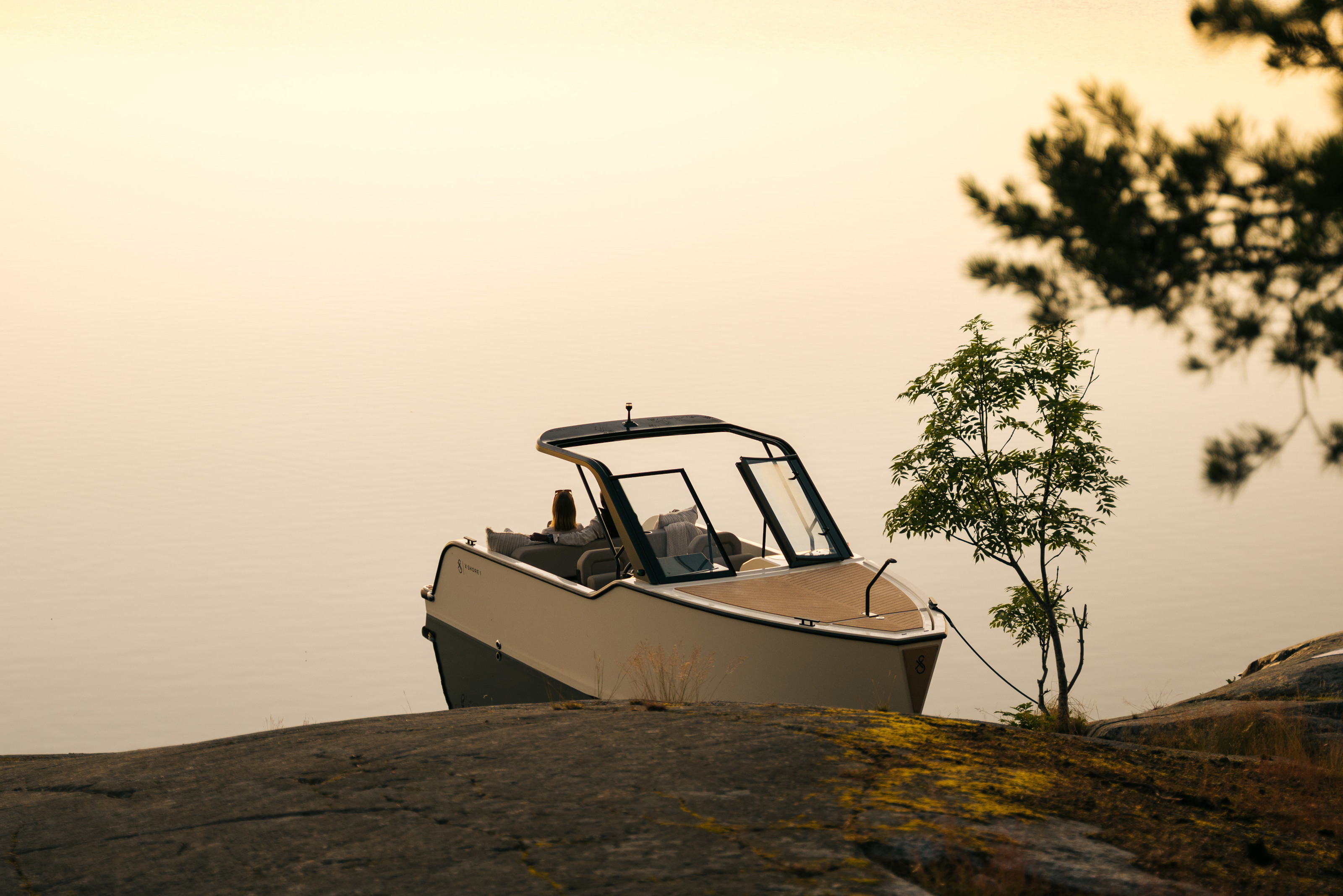
The X Shore 1 eschews hydrofoil technology in favour of a 125kW electric motor to power its sleek form through the waves. At 6.5m long, the craft can be configured as a fully open Bowrider, or with a front cabin and an enclosed cockpit. The X Shore 1 will compete with the likes of the Frauscher x Porsche 850 Fantom Air in the fast-expanding market for elegant, swift day boats that combine high-end design with low maintenance systems.
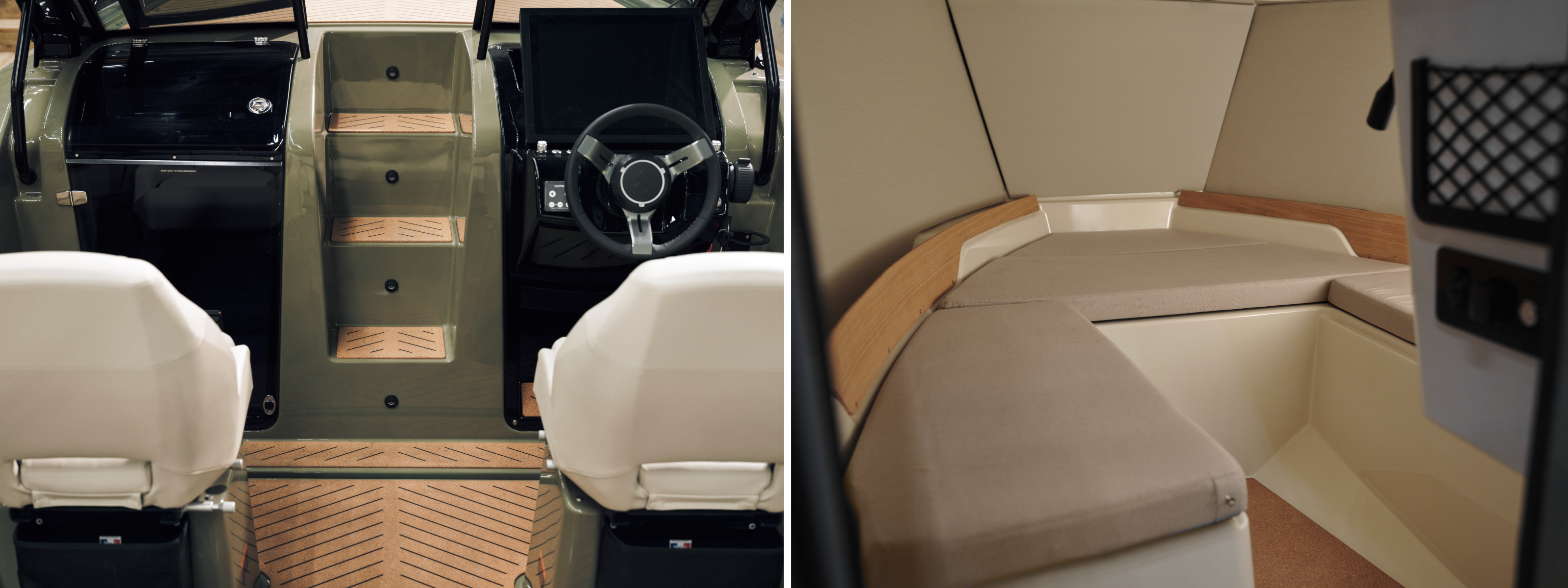
X Shore 1, from €129,000, XShore.com, @X_Shore
Edorado 8S
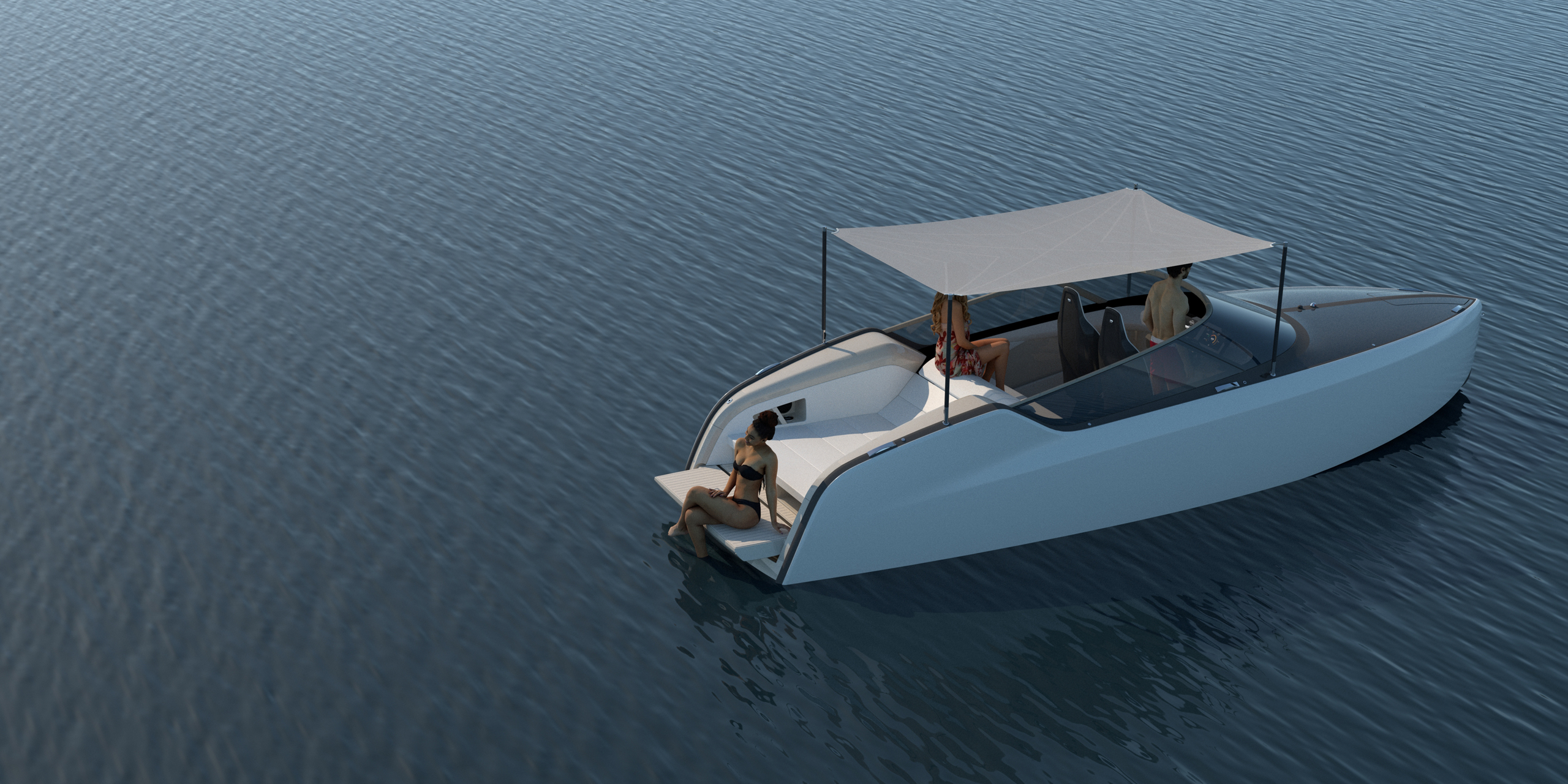
Edorado is a Dutch hydrofoil electric powerboat manufacturer hoping to break into the luxury, high-performance hydrofoil market with its forthcoming 8S. With a supremely elegant silhouette, this electric hydrofoil is pitched at high-end boat owners, who appreciate tech-heavy systems like an all-screen cockpit and automated anchor system. Clever details like the pop-up cleats keep the lines smooth.
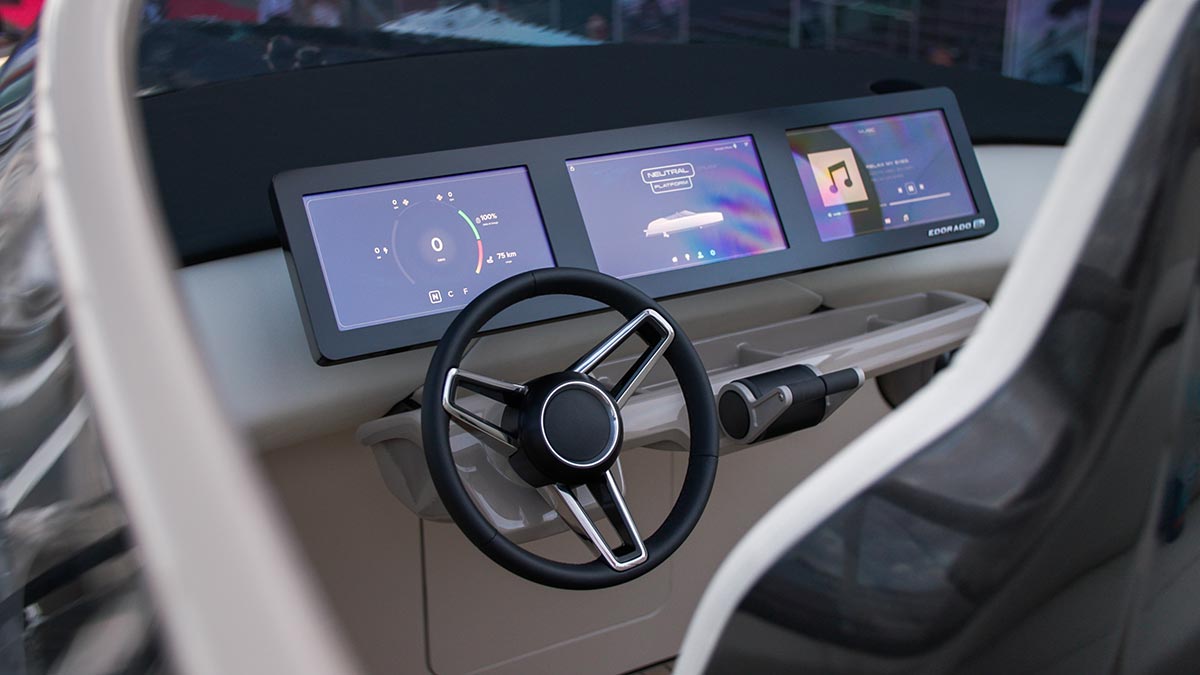
Axopar AX/E
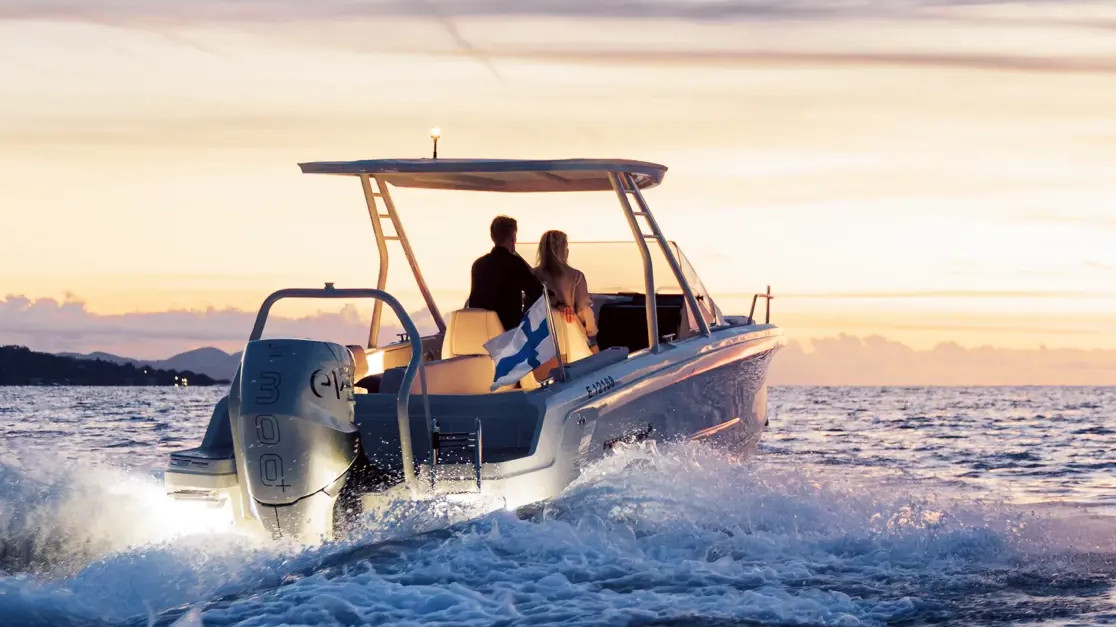
Finnish manufacturer Axopar makes leisure boats for customers across the Nordic region. The company recently moved into electric models with the AX/E 22 and AX/E 25, both of which use propulsion systems developed by Norwegian manufacturer Evoy. Performance is a priority, with the Evoy Storm motor capable of taking the AX/E 25 to over 50 knots, with a range of around 25 miles at regular cruising speeds. The 8m model also has a forward ‘cuddy’ cabin for overnight stays.
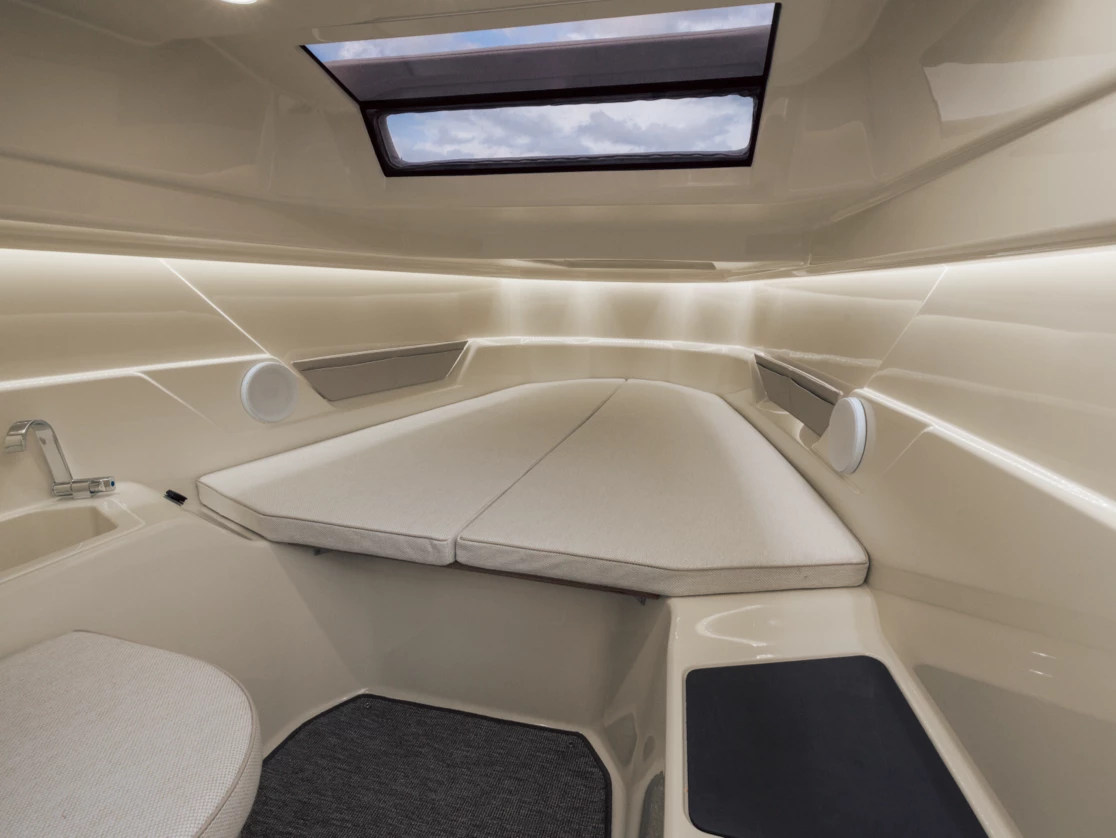
Iguana Foiler
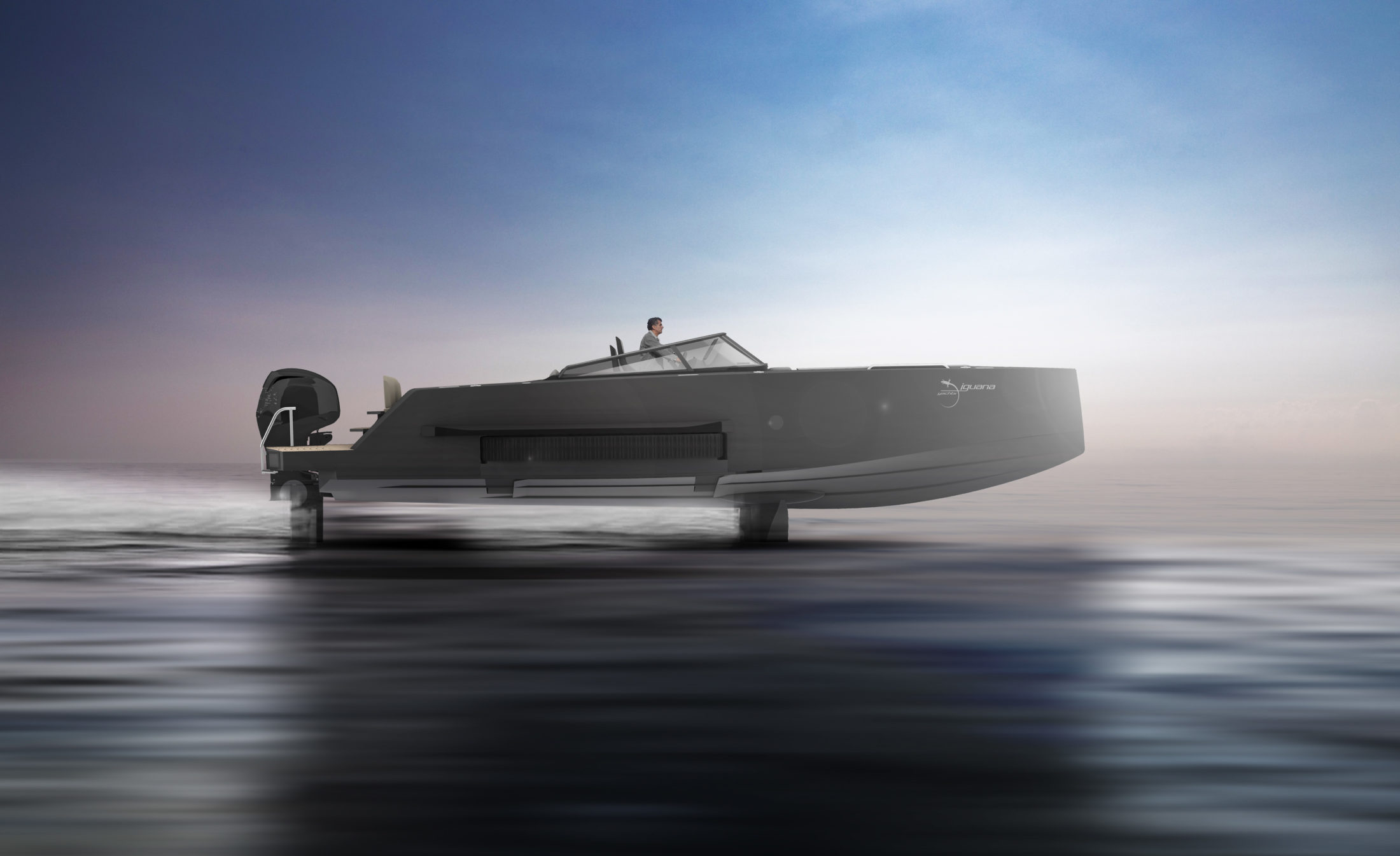
The Iguana’s party trick is that it’s amphibious, with integral retractable caterpillar tracks that allow the company’s craft to crawl up on shallow beaches. Built in France, the company’s new Foiler model is billed as the ‘first fully electric amphibious boat’, pairing surface piercing hydrofoils, an Evoy electric outboard motor and foldable tracks. Often specified as a tender vessel on the larger superyachts, the Iguana Foiler is a multifunctional vessel with a range of up to 50 miles.
